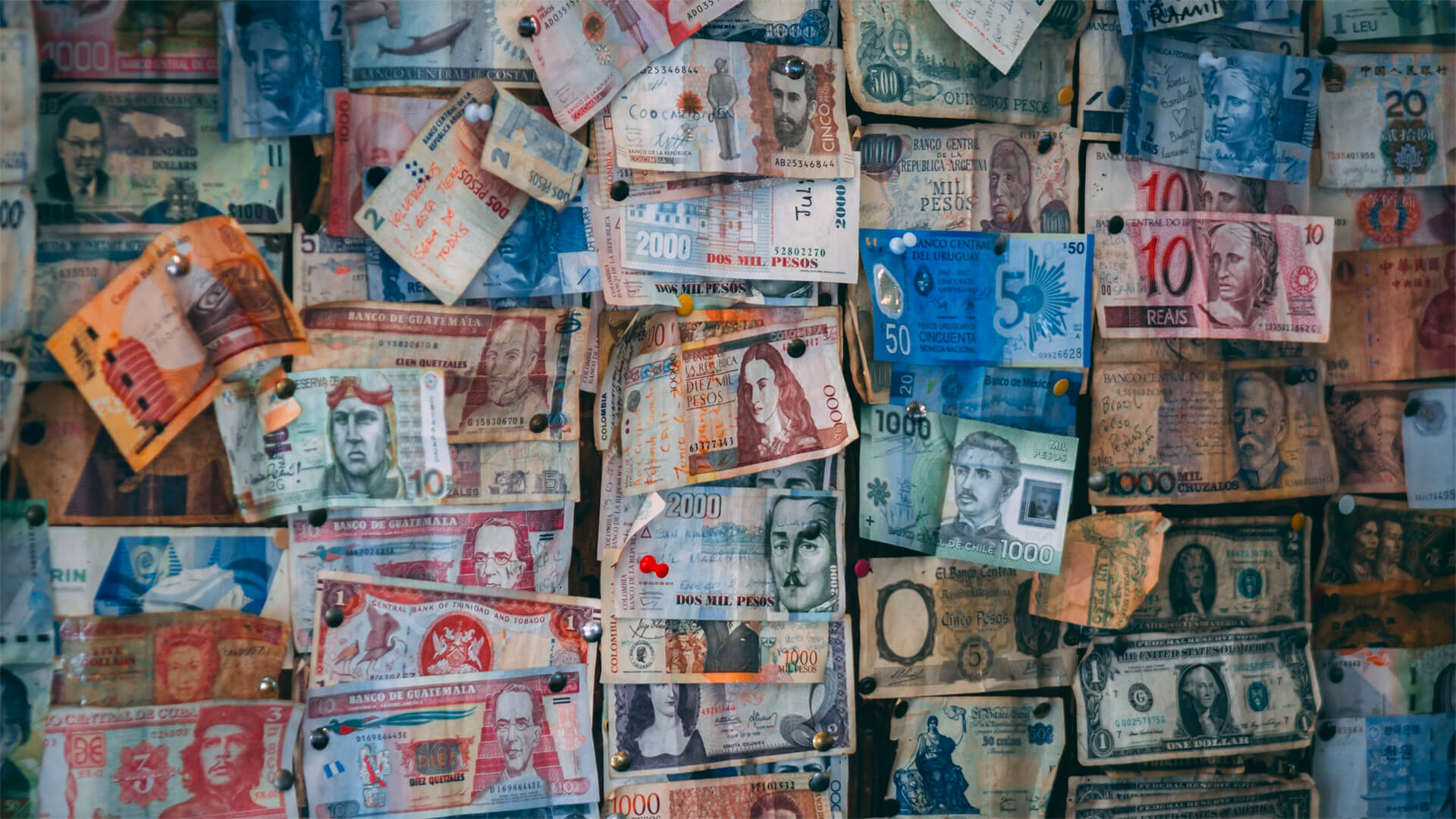Today, we’re turning our attention to Argentina’s upcoming run-off presidential election between current economic minister Sergio Massa and libertarian candidate Javier Milei. I could do a whole series on the effects of Peronism, but this time, I’ll be focusing on Milei’s proposed dollarization program.
Argentina has defaulted on its national debt nine times, and the government can manipulate events (and people) by hitting the peso printing button. Switching to the American dollar would institute some financial responsibility, but is it feasible?
Milei would need to come up with a metric-shit-ton of US dollars for this to work, but we’re still ignoring the impact on banking stability and the risk of hyperinflation. I’m not quite sold on the idea just yet, but let’s see who gets put in office before we go further down that rabbit hole.
Here at Zeihan On Geopolitics we select a single charity to sponsor. We have two criteria:
First, we look across the world and use our skill sets to identify where the needs are most acute. Second, we look for an institution with preexisting networks for both materials gathering and aid distribution. That way we know every cent of our donation is not simply going directly to where help is needed most, but our donations serve as a force multiplier for a system already in existence. Then we give what we can.
Today, our chosen charity is a group called Medshare, which provides emergency medical services to communities in need, with a very heavy emphasis on locations facing acute crises. Medshare operates right in the thick of it. Until future notice, every cent we earn from every book we sell in every format through every retailer is going to Medshare’s Ukraine fund.
And then there’s you.
Our newsletters and videologues are not only free, they will always be free. We also will never share your contact information with anyone. All we ask is that if you find one of our releases in any way useful, that you make a donation to Medshare. Over one third of Ukraine’s pre-war population has either been forced from their homes, kidnapped and shipped to Russia, or is trying to survive in occupied lands. This is our way to help who we can. Please, join us.
Transcript
Hey everybody. Peter Zeihan here coming to you from Boston Harbor. The news over the weekend was that in Argentina, we had our first round presidential contest and the two finalists who will compete in the first weekend of November are a guy from the ruling party, the protest. He’s the economy minister and a guy from the libertarian field, which is Javier Malay.
And apologies if I got that name right. If you win, I’ll learn to pronounce your name. Just ask Birdie Mohammed off of Turkmenistan. Okay, let’s see what to say. Malays. Big thing is that he wants to do away with the Argentinean peso and institute a dollarization program. Three big things for us. Number one, this is more than just some financial chicanery.
This has really real implications for the Argentineans, as well as everybody else in the neighborhood, because the financial strategies of the protests are a little wackadoo. Peronism is a very nonstandard, political and economic ideology, and it combines things the worst aspects of Venezuelan socialism with corporate Nazi ism. So basically under a cult of personality on top of that.
So if you can imagine AOC of the squad and of the American Congress, you know, one of those really, really, really left wing weirdos having a lovechild with Donald Trump. I mean, it would be an ugly, ugly, ugly, hideous child. But that’s basically what Peronism is. And among other things, it’s heavily unionized. But the government represents the unions, and it believes that the government should be able to print currency and any volume to pay for everything so long as you’re a political ally.
Needless to say, this has gotten Argentina into a lot of financial trouble over the last century. They’ve defaulted on their debt, I think nine times, and it should be a very successful country based on their demographics and the geography. But policy keeps getting in the way. So if you’re an American who thinks that you can do no wrong.
Bear in mind that if you wake up every day for decades, just try to wreck everything you can eventually become Argentina. So there is a limit to what we can get away with now with that kind of in your back pocket. Let’s talk about the impacts here. If dollarization worked, it would destroy the ability of the proneness or really any government in Argentina to use their central bank and their currency in order to manipulate events.
And that is honestly the idea here that Melaye has is this if we can wreck their ability to do what they’ve been doing these last 90 years, then that entire political ideology will die on the vine because they’ll actually have to then balance the books and do things like have petitions, responsibility. And in that sort of environment, people who can do math are going to do better than people who cannot do math.
So this is there’s more at stake here than simply having a balanced budget is about eliminating what has been the dominant ideology of the country has been very, very damaging for generations. But to number two, it’s not easy. The first step to erasing the economy is to remove all the pesos from circulation. And that means that the Argentine government under Melaye would have to go out and get a lot of U.S. dollars to buy back all the currency.
And the government is completely broke. One of the reasons why the Peruvians are printing currency like mad. So the first thing they would have to do is come up with billions and billions and billions of dollars in order to buy up all the old currency. Now, doing that is beyond the government’s capacity right now, unless they do a mass devaluation and if they devalue the peso by at least, say, three quarters.
So make it worth at most 20 to 25% of what it’s worth. Now. Then the number of dollars that you need would be significantly less. So in order to stop the budget largesse and the hyper inflation that comes from that, the first step would be to trigger hyperinflation. Needless to say, that would have not just economic but political outcomes.
So not something that could be done easily, lightly or without consequences. Which brings us to the third thing, whether or not it would even work. The whole idea of dollarization in the handful of countries that have done it is they believe that their institutions are not sufficiently responsible to be granted independent monetary policy and control over printing press.
So by doing away with that completely, basically ending the central bank, you then have a system where everyone is beholden to a much more responsible monetary regimen that of the United States. You know, you can cue the laughter for those of you who are gold bugs out there. The issue with this is that there’s more things that the central bank does and just regulate the currency.
There are also the lender of last resort. They’re also the regulator for the banking sector. And if you have a central bank that does not have the capacity to step in and help the banks in a system that is as fiscally wobbly as Argentina, you’re also going to have a bank run, a bank collapse and nothing behind it to stabilize it.
So for this plan to work, not only do a lot of things have to go right that are beyond Argentina’s control, but Argentina would have to enter through a series of banking and fiscal reforms in a matter of days that most countries take a generation to do. There’s a reason why dollarization, as a rule, is not something that states do, and it’s certainly not a quick fix.
It requires years of reforms, and it’s not clear that the political and economic system in Argentina has that sort of durability or attention to detail. So honestly, dollarization, as a rule, reminds me a lot of Boston’s participation in the Revolutionary War or modern sports. They hit hard right out of the gate. They pick a lot of fights, and then they largely sit out for the rest of the season.








